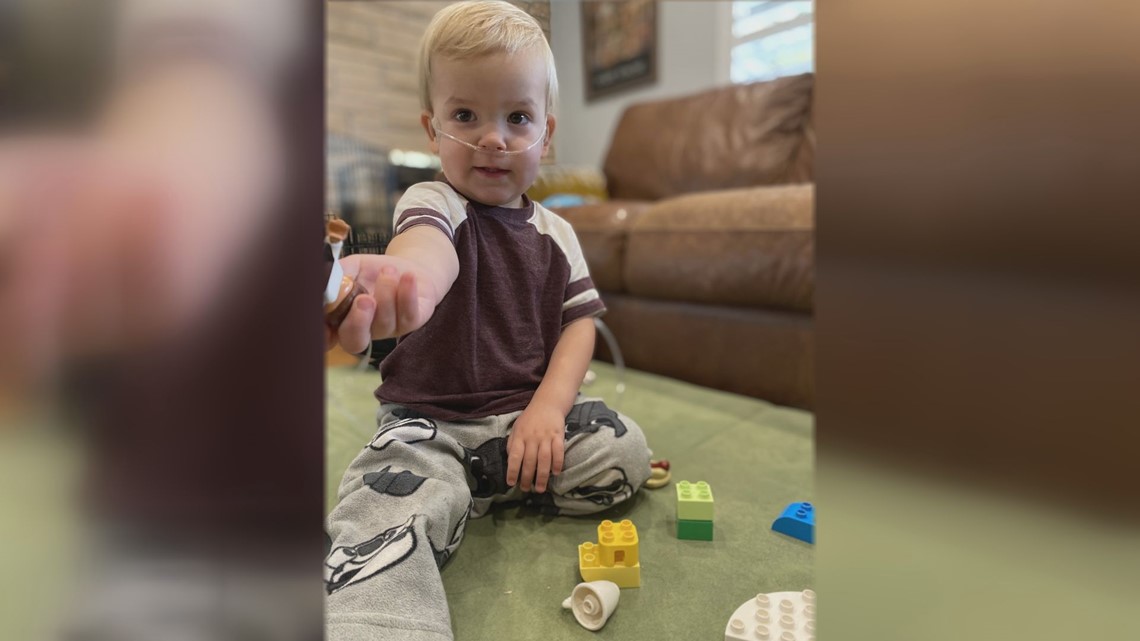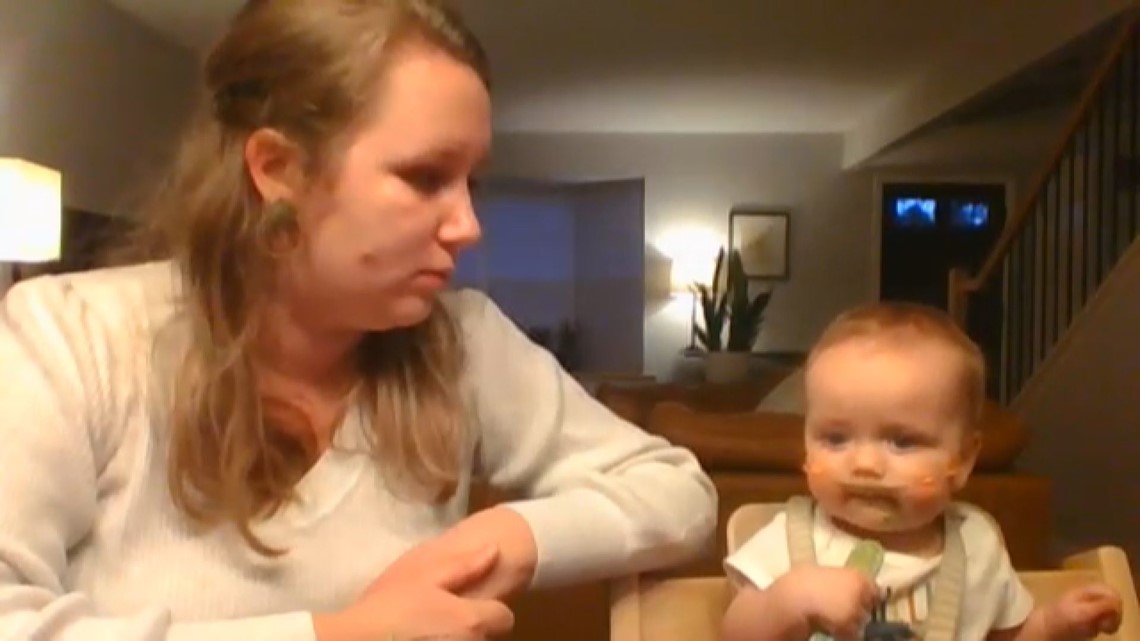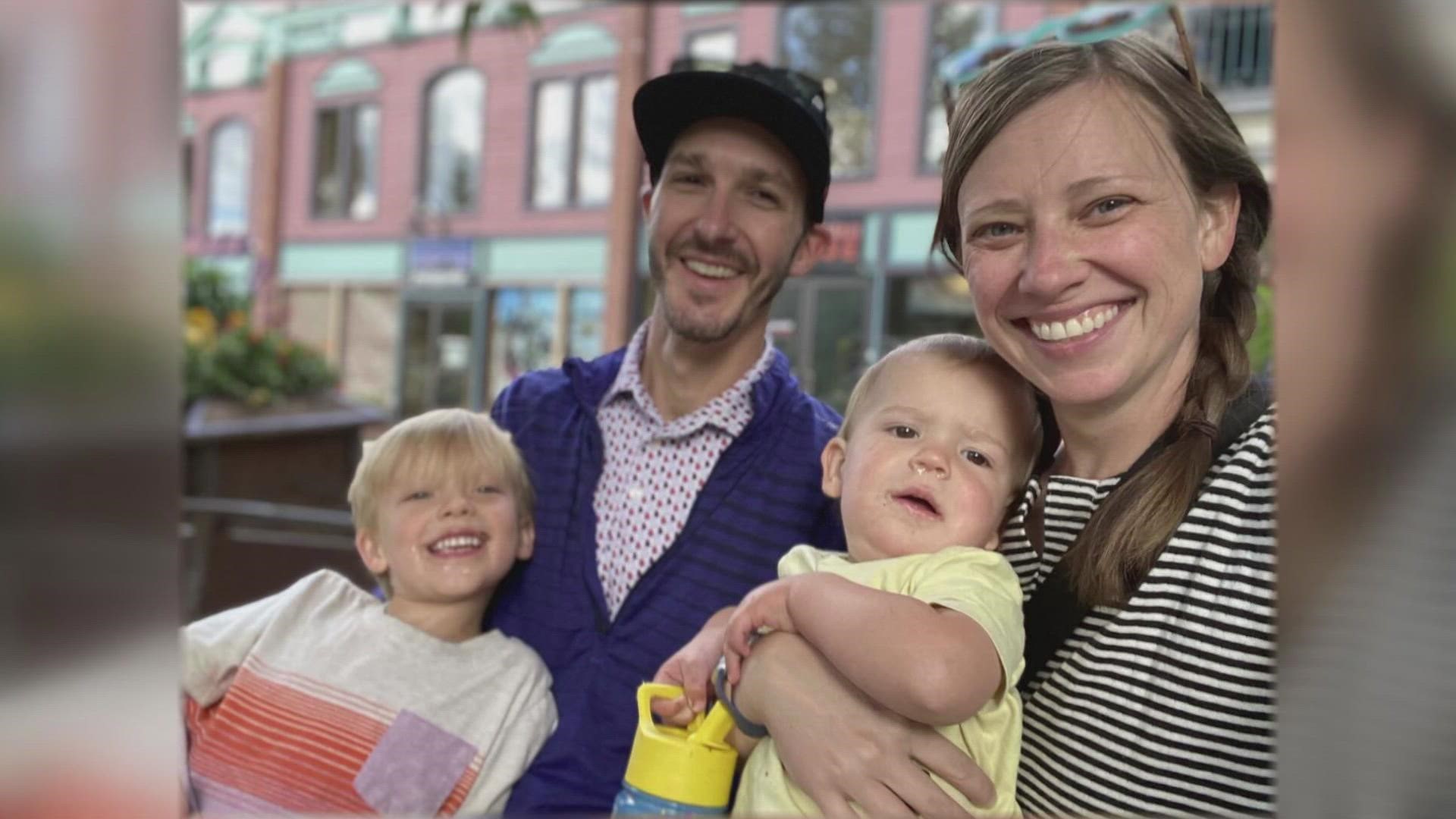DENVER — The Cruse family in Wheat Ridge is no stranger to RSV.
Claire Cruse and her husband's first child, Adler, had it back in 2018. Just this week, their son, 2-year-old Edan, is now facing the same symptoms.
While doctors didn't test Edan for RSV, they're treating it as RSV-caused bronchiolitis.
The first sign of symptoms, Cruse said, were that of mucus.
"And then that quickly turned into a cough. And then the cough started to turn in a way that kind of seemed more serious and seemed like it was not only just a cough, but it was him struggling to breathe," she said.
What made her believe things turned more serious was when she could see Edan panting while sleeping.
"And so I took him into the pediatrician the next day and that's when we kind of started treating it as RSV bronchiolitis," she said.


Over in Lakewood, Christina Gloor's son, Silas, has already faced other illnesses at just 9 months old, including COVID-19.
But last Wednesday, she noticed a similar pattern to that of Cruse's son.
"So I had gone in and checked on him to feed him before I went to bed, and that's when I noticed he was breathing really fast. And so when I unzipped his jammies to look at his chest, I saw that he was having those retractions underneath his ribs that were showing that he was having a hard time breathing," she explained.
Both are symptoms that doctors have told 9NEWS are signs that parents should take their child to a medical care provider.
In Silas's case, Gloor took him to the hospital.
Both children were sent home with oxygen.
Silas is still coughing a lot, Gloor explained, as well as still breathing fast at some points, but the oxygen is helping him not work as hard.
Meanwhile, Edan is starting to get some energy back, Cruse said.


According to the Colorado Department of Public Health and Environment, there have been 367 hospitalizations related to RSV since Oct. 1, along with 57 outbreaks at schools and childcare facilities.
Over at Children's Hospital Colorado's Anschutz Campus, they have redeployed a patient care tent outside of the emergency department that is being used to treat low acuity patients.
This tent was first used in March 2020 at the start of the COVID-19 pandemic and can be used to assist in timely, efficient and safe patient care delivery, according to a spokesperson.
In the meantime, both Cruse and Gloor tell parents to trust their gut when examining their child's symptoms.
"I have a really close group of mom friends, too, that have been through this themselves. And they just kept saying, 'trust your mama gut,'" Cruse said.
"And so if you feel that something's wrong, call -- listen to your gut and just watch out for those for those signs," said Gloor.
SUGGESTED VIDEOS: Latest from 9NEWS

